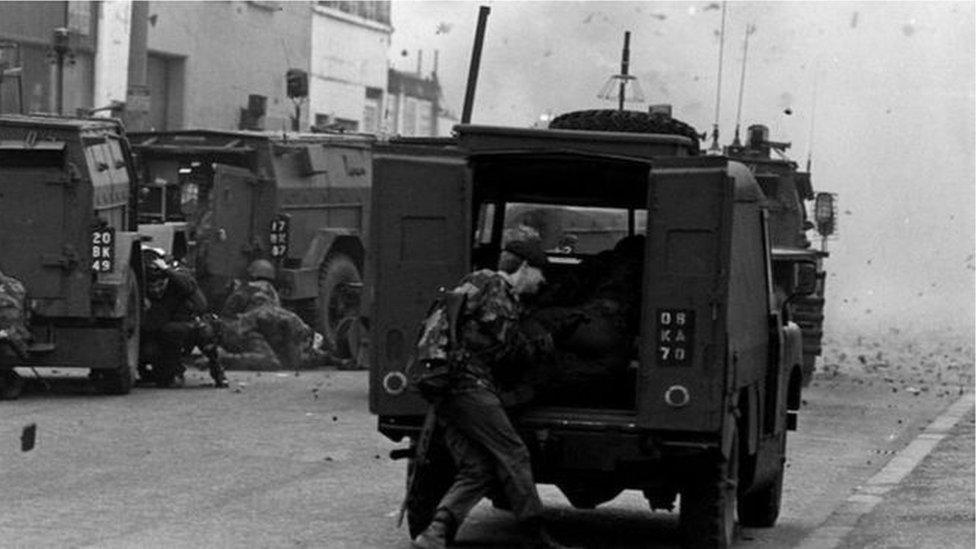Jim Shannon cries recalling cousin's death to MPs
- Published
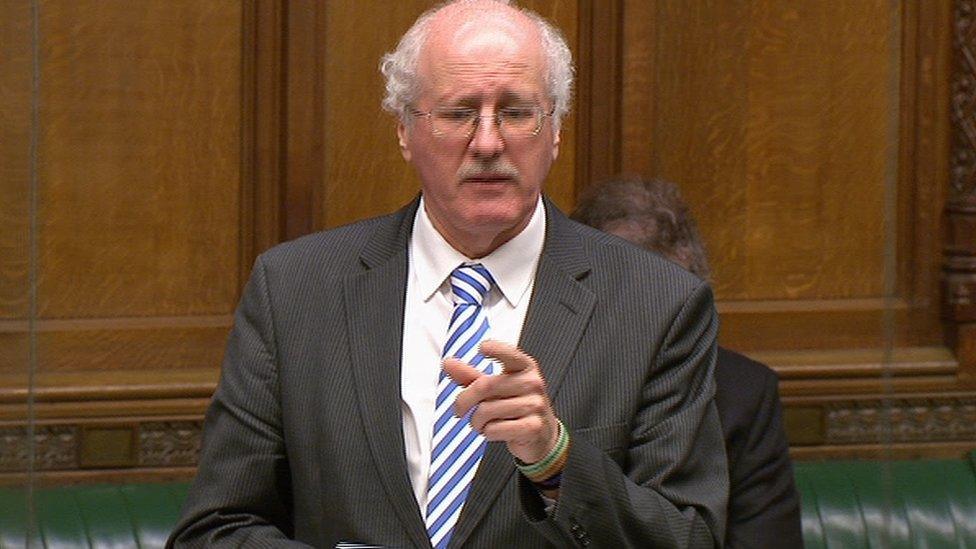
Jim Shannon is the DUP MP for Strangford
DUP MP Jim Shannon has cried in the House of Commons during a debate about the prosecution of security force members.
The Strangford MP said victims of the Troubles want closure and justice.
He referred to the death of his cousin, Kenneth Smyth, murdered by the IRA, and other UDR members he knew personally.
Figures obtained by the BBC have challenged claims that investigations into Troubles killings are unduly focused on those committed by the Army.
The PSNI figures show investigations into killings by the Army account for about 30% of its legacy workload.
Mr Shannon was speaking during a debate brought forward by the DUP on the issue of investigating former members of the security forces during the Troubles.
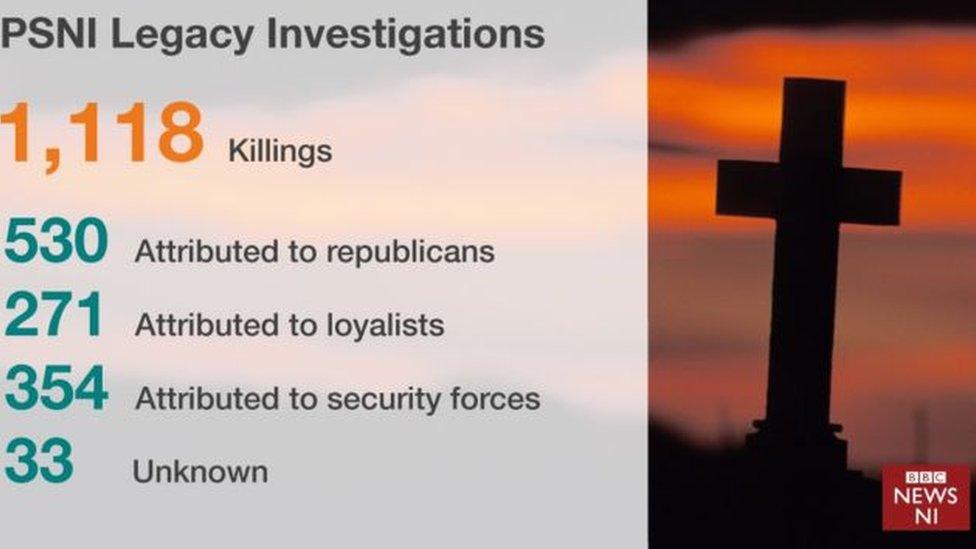
Clearly upset and crying, Mr Shannon told fellow MPs that there was no multi-million pound investigation into the murder of his relative and he said it was wrong to suggest that one life was worth more than another.
"I resent the idea, at the present, that one life is worth more than another - it's not," Mr Shannon said.
Meanwhile, the Republic of Ireland's minister for foreign affairs, Charlie Flanagan, has said prosecutions must be "vigorously pursued" in all unlawful troubles related deaths, regardless of the perpetrator.
Speaking at an event organised by Relatives for Justice on Thursday evening, Mr Flanagan said: "Regardless of who someone was and regardless of what they were doing, there is a requirement to effectively and meticulously investigate their death.
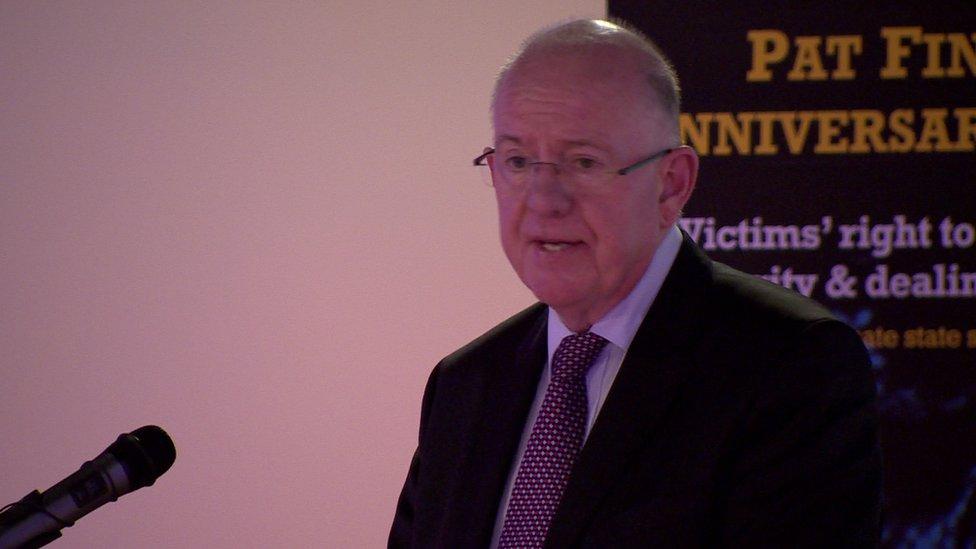
Charlie Flanagan said prosecutions must be "vigorously pursued" in all unlawful troubles related deaths, regardless of the perpetrator
"It is not for governments to say to the bereaved that their loss or suffering is of greater or lesser worth than that or their neighbour or even their adversary."
Mr Flanagan said "the process is not about seeking to find an artificial balance or equivalence but about ensuring that we have a comprehensive approach. That means looking at all Troubles related deaths regardless of who the perpetrator was."
Mr Flanagan added that "there can be no hierarchy of victims".
"The Stormont House institutions set out a comprehensive, inclusive approach to dealing with our troubled past which also meets the obligations on State Parties - including the British and Irish governments - under the European Convention on Human Rights," he said.
SDLP MP Margaret Ritchie said inquiries "must be balanced and fair" and that the processes "must be set by victims and survivors, with truth and accountability at its very core".
She said that "no one is or should be above the rule of law".
Ulster Unionist MP Danny Kinahan said there is a moral duty to look after service personnel.
The South Antrim MP said: "Unfortunately, too often, our troops have faced baseless accusations and have been dragged through the courts unnecessarily."
"No one is above the law regardless of whether they are in a uniform or not," he added.
Legacy cases
Ms Ritchie acknowledged that inquests and prosecutions can look disproportionate, but they are only "part of what we are doing" and everyone should face justice.
Northern Ireland Secretary James Brokenshire spoke in favour of reforming legacy tribunals in Northern Ireland.
The police and armed forces cannot "act above [the law] or outside it", he said, but noted that the vast majority acted "honestly and with bravery".
He said that where soldiers face legal action, the government will supply counsel and "taxpayer-funded legal support will be provided" for as long as necessary.
He said, however, that in the case of Northern Ireland, the legacy cases have favoured those against the state.
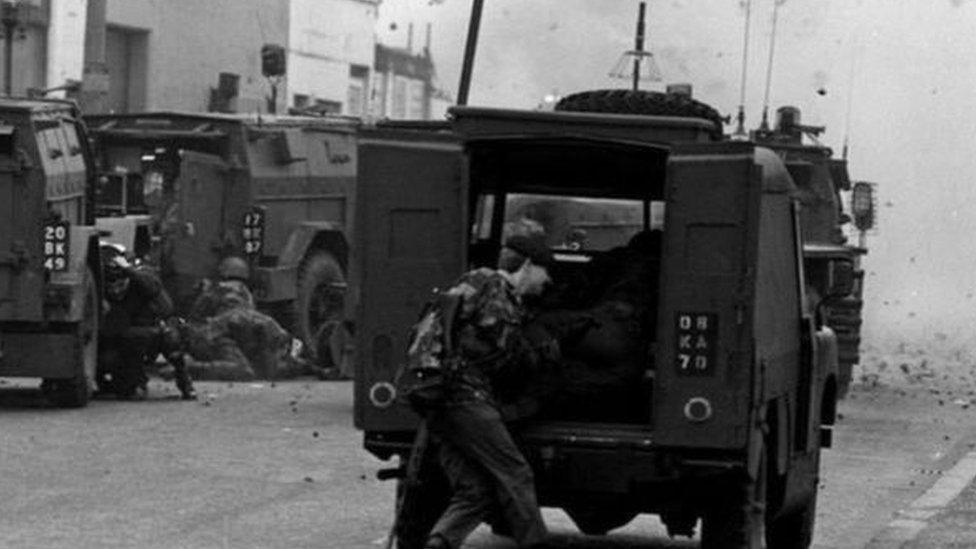
Soldiers in Northern Ireland pictured during the Troubles
He said that the system in Northern Ireland is not "delivering for anyone", and promised - in line with the Conservative manifesto - to reform the legacy tribunals and fully implement the Stormont House Agreement.
He described those who use the courts to make money off legacy cases as "appalling",
DUP MP Ian Paisley said the Director of Public Prosecutions for Northern Ireland, Barra McGrory, should remove himself from any involvement in legacy cases involving former members of the security forces because of a "perceived conflict of interest".
Conservative Sir Gerald Howarth accused Mr McGrory of issuing "a fatwa" to the media to suppress criticism of his treatment of veterans.
In a statement, a spokesperson for the Public Prosecution Service (PPS) said it was "aware of the debate and the breadth of political opinion expressed in the House of Commons" on Thursday.
"The PPS is wholly independent and, as the secretary of state has outlined, 'it is wrong to suggest that the PPS is applying itself to one side'," it added.
"There is no reason for a perception that the PPS does anything other than apply the law as it currently stands in Northern Ireland and does so without fear, favour or prejudice.
"All of our decisions are taken in full compliance with the PPS Code for Prosecutors."
On Wednesday, Prime Minister Theresa May attacked those she claimed have made a business of dragging soldiers through the courts over incidents in Northern Ireland.
She told MPs the government would ensure any Stormont investigative bodies have a legal duty to be fair, balanced and proportionate.
Sinn Féin's Gerry Kelly said on Thursday that Mr Brokenshire's remarks in the House of Commons were "an attempt by the British establishment to grant immunity to state forces involved in the conflict".
"Today James Brokenshire repeated the crass comments of British prime minister Theresa May that it is 'appalling when people try to make a business of dragging our brave troops through the courts'," Mr Kelly said.
He added that Mr Brokenshire's remarks were "dangerous and disgraceful".
- Published22 February 2017
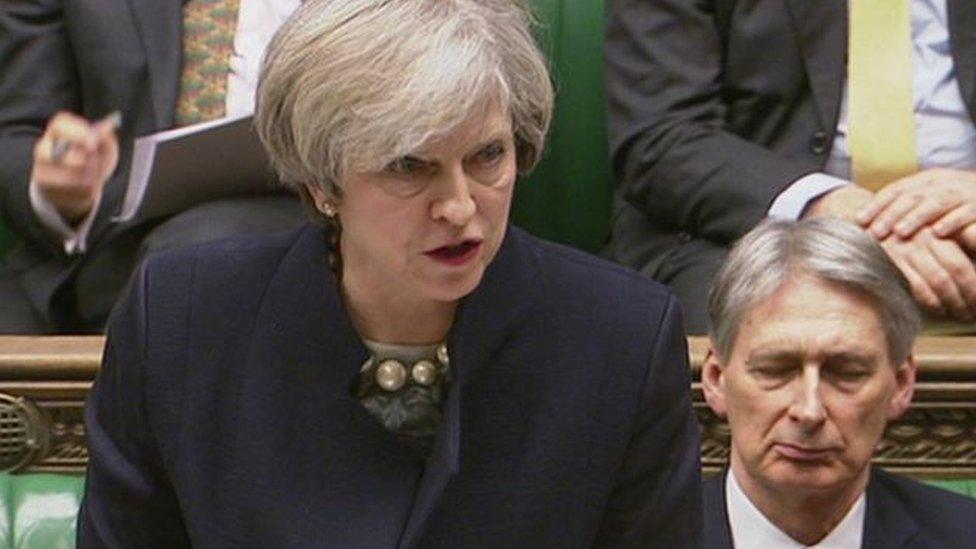
- Published2 February 2017
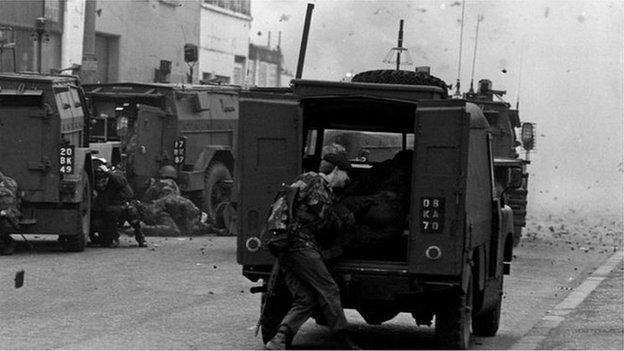
- Published26 January 2017
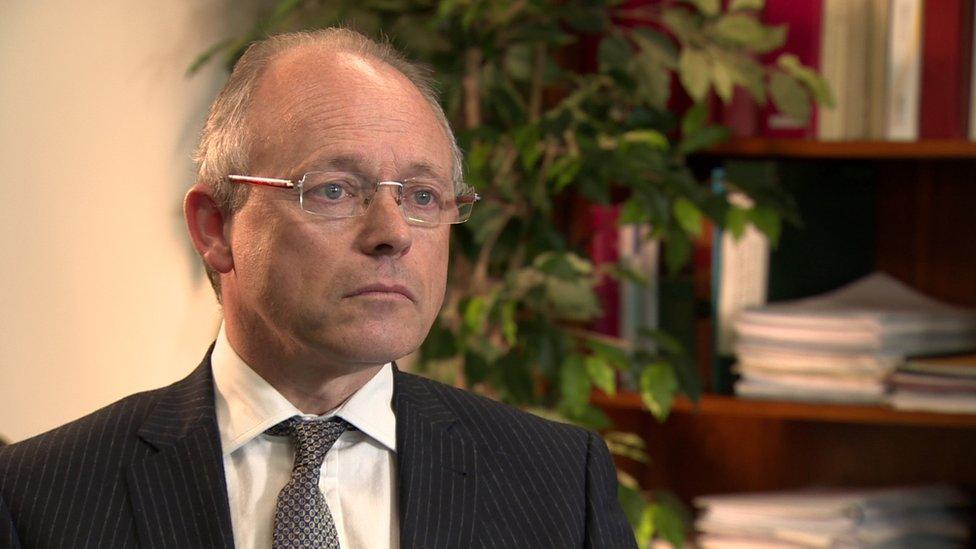
- Published25 January 2017
